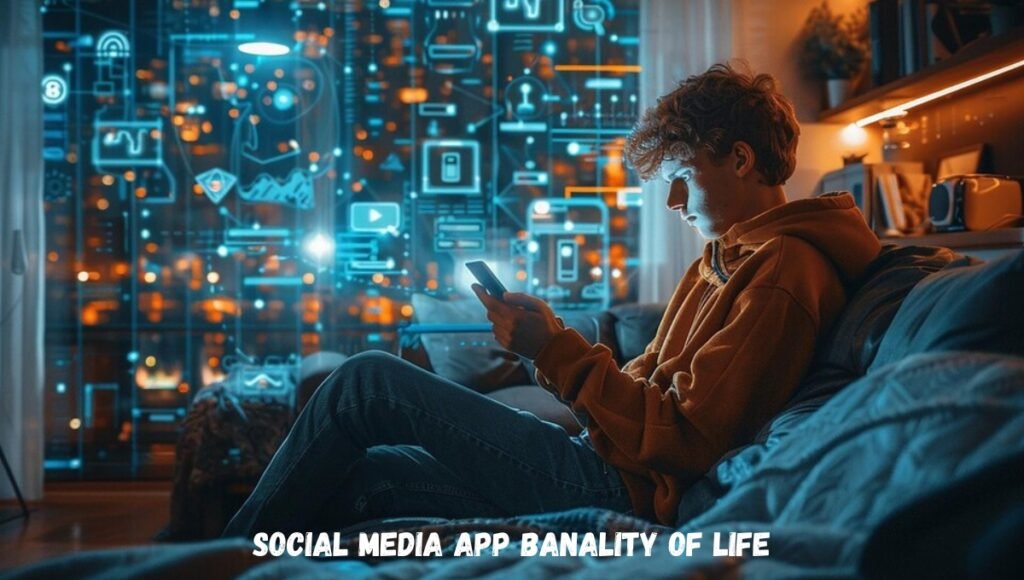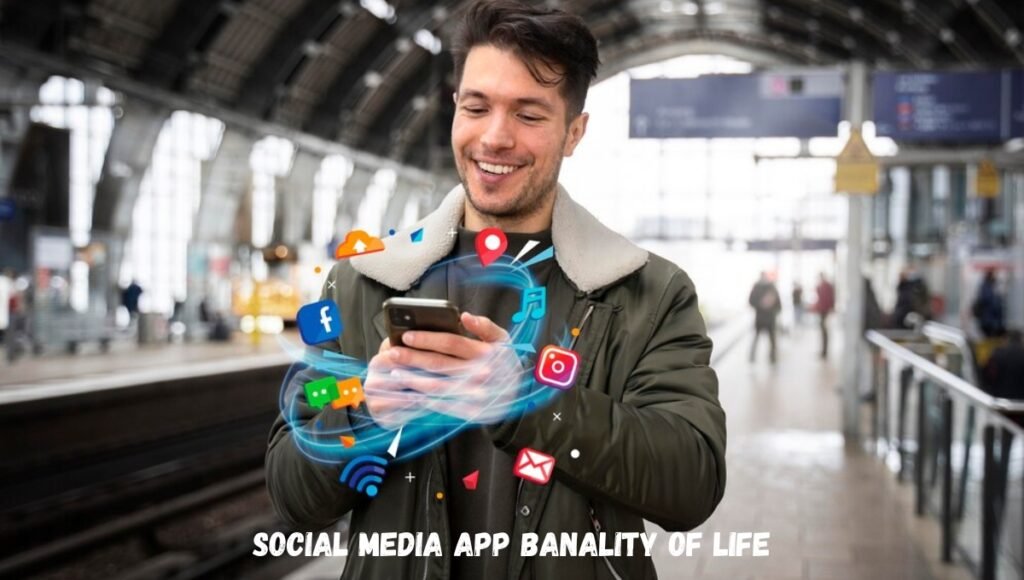Introduction
In a world where social media apps have become omnipresent, our daily interactions and experiences have been subtly, yet profoundly, transformed. These platforms, initially designed to connect us, have evolved into mirrors reflecting the monotony of everyday life. Social Media App Banality of Life is a phenomenon that raises questions about authenticity, the commodification of everyday moments, and the impact on our mental well-being.
The Ubiquity of Social Media App Banality of Life
Social Media App Banality of Life have woven themselves into the fabric of modern life. From the moment we wake up to the time we go to bed, these platforms are ever-present. With billions of users worldwide, apps like Facebook, Instagram, TikTok, and Twitter have redefined how we communicate, consume information, and present ourselves to the world.
Despite their benefits, these platforms also encourage a kind of superficial engagement. The repetitive nature of scrolling through feeds filled with similar content—selfies, food pictures, and daily routines—creates a sense of sameness that permeates our online lives. This ubiquity often results in a paradox: the more we engage, the more mundane our experiences seem.
The Rise of Mundane Content
One of the most noticeable trends on social media is the rise of mundane content. Posts about everyday activities—what someone had for breakfast, a gym selfie, or a sunset photo—dominate feeds. While these posts are relatable and provide a glimpse into the lives of others, they also contribute to the overall banality of content on these platforms.
This kind of content is easy to create and consume, leading to its proliferation. However, it also means that Social Media App Banality of Life becomes a repository for the ordinary, making it harder to find truly unique or meaningful interactions. This, in turn, can lead to feelings of boredom and dissatisfaction among users.
The Impact on Authenticity
Social Media App Banality of Life also raises questions about authenticity. As users strive to fit into the norms of these platforms, they often curate their lives to appear more interesting or appealing than they truly are. This curation can lead to a disconnection between a person’s online persona and their real life, fostering inauthentic interactions.
Moreover, the pressure to constantly post and share can diminish the value of real-life experiences. Instead of fully enjoying a moment, users might be more concerned with how it will be perceived on social media. This shift in focus from genuine experience to online validation further contributes to the banality of social media.
The Role of Algorithms
Algorithms play a crucial role in perpetuating the banality of content on social media. These complex systems are designed to keep users engaged by showing them content that is likely to interest them. However, this often results in a feedback loop where users are exposed to similar types of content repeatedly, reinforcing the mundane nature of their social media experience.
The prioritization of popular or trending content can overshadow more unique or diverse voices, making Social Media App Banality of Life a less enriching space. Additionally, the algorithmic preference for certain types of content, such as visually appealing images or controversial topics, can push users to conform to these standards, further limiting the diversity of content.
The Commodification of Everyday Life
Social Media App Banality of Life have also turned everyday life into a commodity. Moments that were once private or shared within small, intimate circles are now broadcast to a wide audience. This shift has commercialized the way we experience life, as people increasingly perform their daily routines for the benefit of their followers rather than for personal enjoyment.
Brands and influencers have capitalized on this trend, blurring the lines between personal expression and marketing. The constant stream of advertisements and sponsored content can make social media feel like a never-ending marketplace, where every aspect of life is up for sale.
Mental Health Implications
Social Media App Banality of Life is not just a trivial issue; it has significant implications for mental health. Constant exposure to repetitive, mundane content can lead to feelings of ennui and dissatisfaction. The pressure to conform to social media norms and the incessant comparison with others’ seemingly perfect lives can contribute to anxiety, depression, and low self-esteem.
Moreover, the addiction-like nature of these apps, fueled by the dopamine rush of likes and comments, can trap users in a cycle of seeking validation through mundane posts. This can create a dependence on social media for self-worth, further exacerbating mental health issues.
The Search for Meaningful Engagement
Amidst the banality of life on Social Media App Banality of Life, many users are seeking more meaningful engagement. This can take the form of joining niche communities, engaging in deeper conversations, or curating a more intentional online presence. By focusing on quality over quantity, users can counteract the monotony that often pervades social media.
Some platforms are also recognizing the need for more meaningful interactions. Features like Instagram’s Close Friends list or Twitter’s Circles allow users to share content with a more selective audience, fostering a sense of intimacy and authenticity. These tools can help mitigate the banality of content by encouraging more genuine connections.

Strategies to Combat Social Media App Banality of Life
To combat Social Media App Banality of Life, users can take several proactive steps:
- Mindful Consumption: Limit time spent on social media and focus on consuming content that is enriching and diverse.
- Curating Feeds: Unfollow accounts that contribute to the monotony of your feed and seek out content creators who offer fresh perspectives.
- Creating with Purpose: Instead of posting for the sake of it, share content that is meaningful and reflective of your true self.
- Engaging Authentically: Participate in discussions and communities that align with your interests and values, rather than simply scrolling through your feed.
- Taking Breaks: Regularly unplugging from social media can help reset your perspective and reduce the feeling of monotony.
The Future of Social Media Engagement
As social media continues to evolve, the challenge will be to balance its inherent banality with opportunities for meaningful engagement. Future platforms may need to rethink their algorithms and design choices to promote diversity of content and deeper interactions.
Users, too, will play a crucial role in shaping the future of social media. By prioritizing authenticity and intentionality in their online presence, they can help foster a more vibrant and enriching digital landscape.
Conclusion
Social Media App Banality of Life is a reflection of the platforms’ pervasive influence on our daily lives. While these apps offer numerous benefits, they also perpetuate a cycle of superficial engagement and commodification of everyday experiences. By recognizing this and taking steps to seek more meaningful interactions, both platforms and users can work towards a more authentic and fulfilling social media experience.


